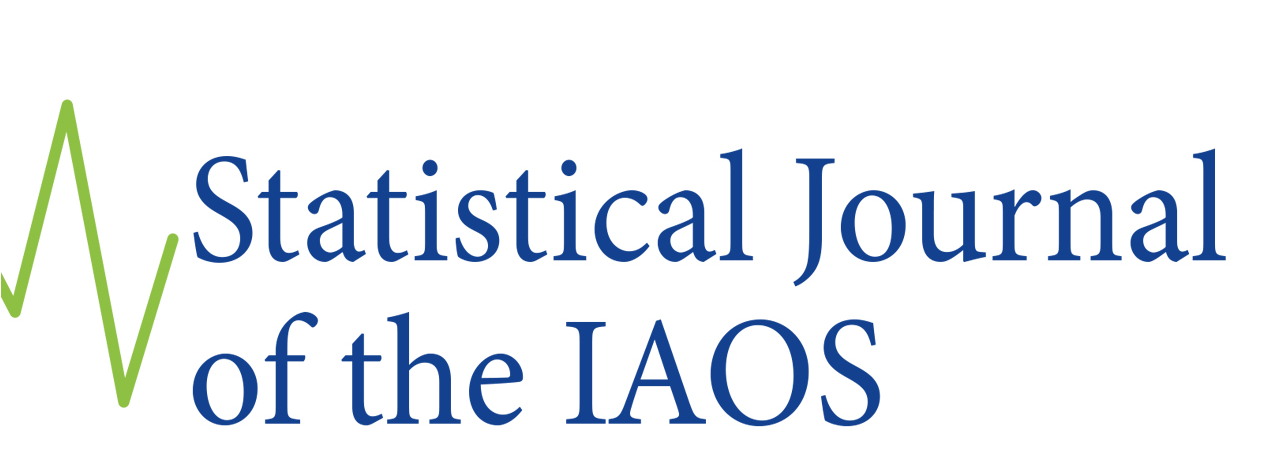
In the June issue of the Journal (Vol 36/2) four papers from this session are published.
The leading article by Andreas Georgiou ‘Pre-release access to official statistics is not consistent with professional ethics’, provided an exhaustive overview of arguments for and against pre-release access to official statistics by the government and/or the press, recalling issues like the 'public interest’ but also the inconsistency of pre-release with the first principles of statistical ethics: impartiality, objectivity, independence. The discussion as took place at the conference in Kuala Lumpur is reflected by the three supporting articles by respectively Giorgio Alleva and Marina Gandolfo (‘Pre-release access to official statistics: the deep difference between privilege access to government and to media’), Marjo Bruun and Heli Mikkelä (“Pre-release and embargo – no, they don't exist" - The release practices of data in the changing data ecosystem’) and Dennis Trewin (‘Discussant comments on pre-release access to official statistics’).
‘Pre-release access to official statistics is not consistent with professional ethics’
Pre-release practice to official statistics varies across and within countries, with pre-release practiced widely: pre-release access by government and pre-release access by the press. Arguments are made for and against specific pre-release options.
Relevant questions in this discussion would be for example if advertised pre-release access by policy makers precludes the possibility of pressure (or the perception thereof) on the independent production of statistics to serve political/policy interests. Is pre-release to government impartial when it gives at least a head start to the party in power relative to its opposition? Does pre-release access by the press adequately protect the level playing field for market participants, and does not lead to profiteering by some? Do the benefits of pre-release outweigh the costs associated with the risks? Is there a need for strengthening the existing movement away from pre-release access and a tightening of the guidelines in codes of practice for official statistics?’
Pre-release and integrity of official statistics
The first statement you are invited to react on deals with pre-release in general:
Pre-release enables the undermining the integrity of official statistics and undercutting the public's trust in these statistics. It serves as a vehicle for unfair gains – whether political, economic, or career. Eliminating prerelease access is in the long term interest of participants in the political process (politicians and political parties), market participants and the broader public.
The necessity of pre-release
A second statement readers are invited to comment on relates to the necessity of pre-release:
As there are appropriate substitutes pre-release access is not necessary either for policy conduct or for the public's understanding of the statistics.
Pre-release and the changing circumstances in official statistics
A third statement readers are invited to comment on relates to the modern identity of official statistics and whether it is consistent with pre-release access:
Pre-release access is a legacy of older times, when official statistics were the statistics ‘of the government’. However, this is not the case anymore, despite the lagging institutional independence of official statistics. Official statistics are a (global) public good and they are not the statistics of the government; official statistics belong to all users.
This statement relates very much on the impact of changing circumstances of new data ecosystems as described in the contribution by Marjo Bruun and Heli Mikkelä (“Pre-release and embargo – no, they don't exist" - The release practices of data in the changing data ecosystem’). Pre-release is as a principle well accepted and respected, however, with the changing role of statistics and especially the data ecosystem an important issue will be how to deal with all the new data providers and their roles, what kinds of rules and principles are to be applied in case of data deliveries or analyst services, or other products not recognized as official statistics?
Pre-release in statistical principles and ethics in statistics
A fourth statement readers are invited to comment on relates to formulations in codified statistical principles and ethics concerning pre-release access:
There is a need for a strengthening of codes of principles and ethics for official statistics as a number of the main codes may display a certain degree of “double think” regarding the specific issue of access by all users and pre-release access when they discuss the statistical ethics principle of impartiality. For example, they may state unequivocally under the principle of impartiality that all users have equal access to statistical releases at the same time, but follow it up by describing privileged pre-release access, seemingly as an acceptable variation of the first sentence.
Alternatives in managing pre-release
In their paper Giorgio Alleva and Marina Gandolfo (‘Pre-release access to official statistics: the deep difference between privilege access to government and to media’) argue that equal access to official statistics by users is an important pillar for impartiality and independence. They state that pre-release access reserved to government, independently of motivations and the time of anticipation, is always to be excluded. However, they see a specific situation in how to deal with the need to provide information to the government in advance of the release calendar in case of urgency. In the paper, cases of appropriate pre-release access and secure "lockup" facility experiences in Istat are presented as a possible way to deal with this problem.
The fifth statement to this discussion is more an invitation to contributors to come up with examples, as in the contribution by Dennis Trewin in his ‘Discussant comments on pre-release access to official statistics’, why it is fine to have some limited pre-release to media and/or government but it has to be managed very carefully so that the integrity of official statistics is maintained: any pre-release arrangements should nevertheless be limited, well-justified, controlled and publicized.
GChenais
"Have adequate time to prepare for comment on news in statistics" a toujours été pour moi le seul point pouvant présenter un intérêt pratique dans un contexte quasi permanent de mise en cause systématique de l'action du gouvernement en place par certains opposants et les media qui partagent leurs conceptions. Le risque est toujours de présenter publiquement et donc à tous, des commentaires inappropriés ; il ne faut pas perdre de vue que seuls les commentaires du Gouvernement ont un caractère officiel (... tout ce que vous pourriez dire peut être retenu contre vous ...), les autres sont des points de vue.
Néanmoins Il est possible de faire autrement en ayant pour règle de conduite du Gouvernement de se réserver un court délai - de l'ordre de celui qui était accordé pour une communication restreinte- (... le droit de garder le silence...). Mais cela n'est pas du ressort de la statistique publique contrairement à la communication restreinte préalable par les statisticiens publics.
Une anecdote révélatrice d'un autre aspect de cette même question. J'ai été témoin d'un cas où une institution internationale ayant participé activement à la finalisation du traitement d'une enquête statistique nationale avait fait état des résultats lors d'échanges avec le Ministre du développement du pays en question, qui lui n'en n'avait pas reçu communication et alors que les résultats n'avaient pas encore été rendus publics par le système statistique national. Cela invite à aborder aussi la question très générale de l'obligation du respect de la législation statistique nationale par des intervenants extérieurs au pays, institutionnels ou privés. Cela concerne surtout des pays en développement qui peinent à se conformer à leur propre législation, pas toujours adaptée, et donc à en exiger le respect.
Gérard Chenais
